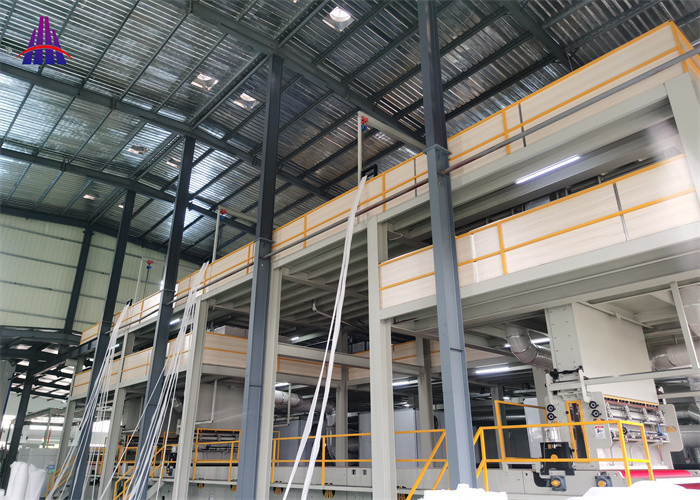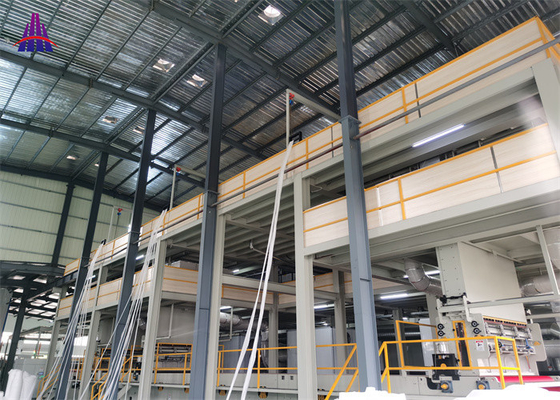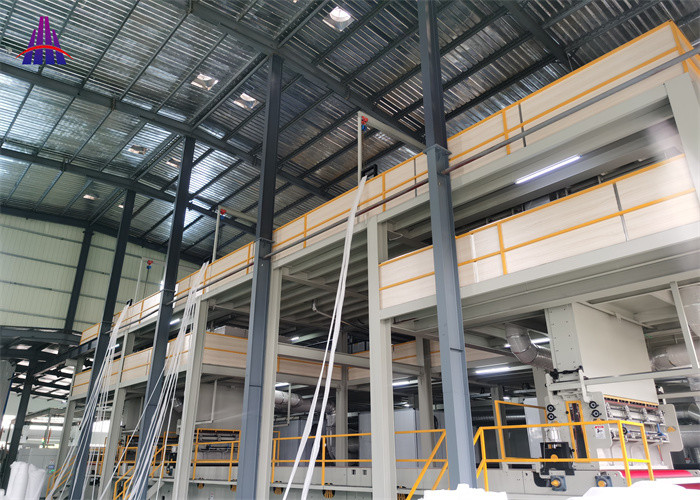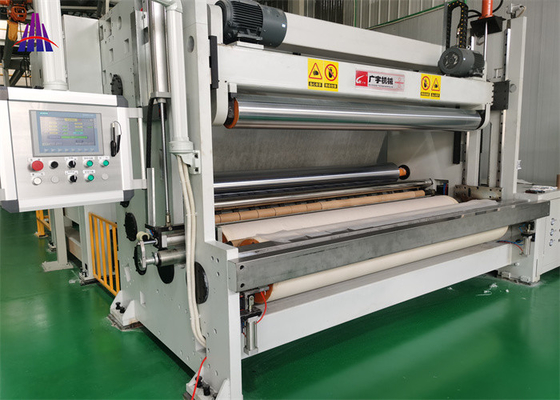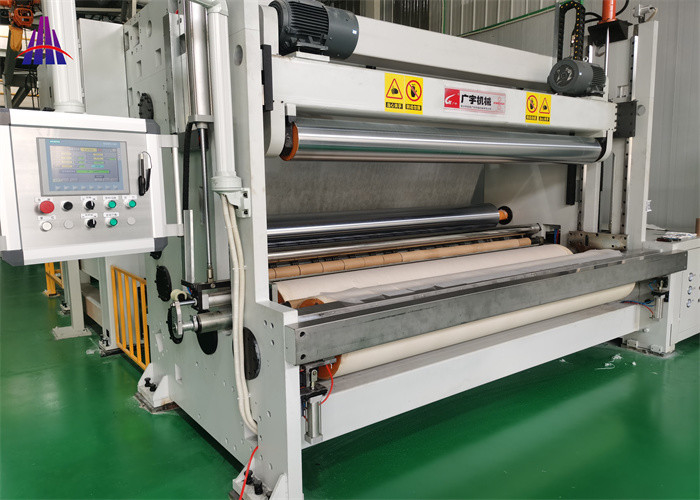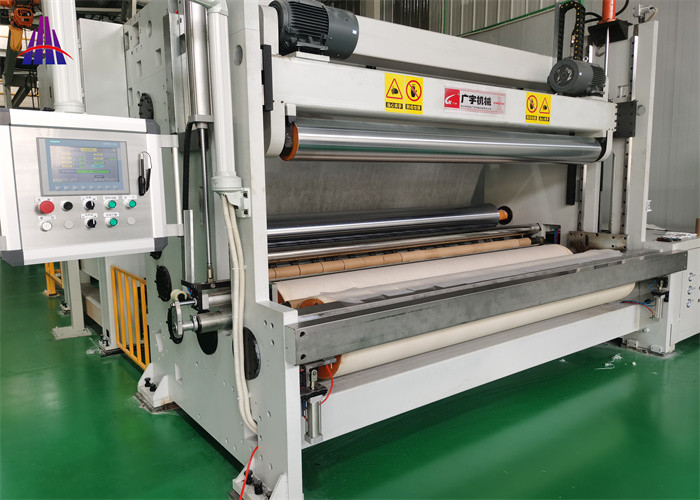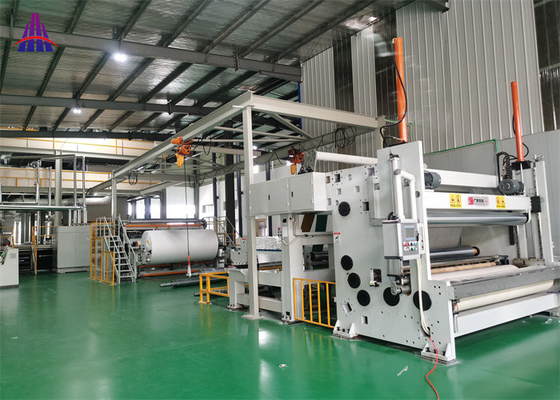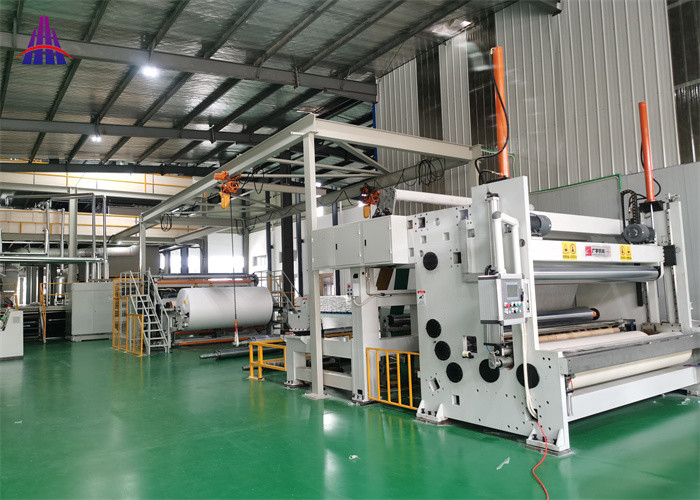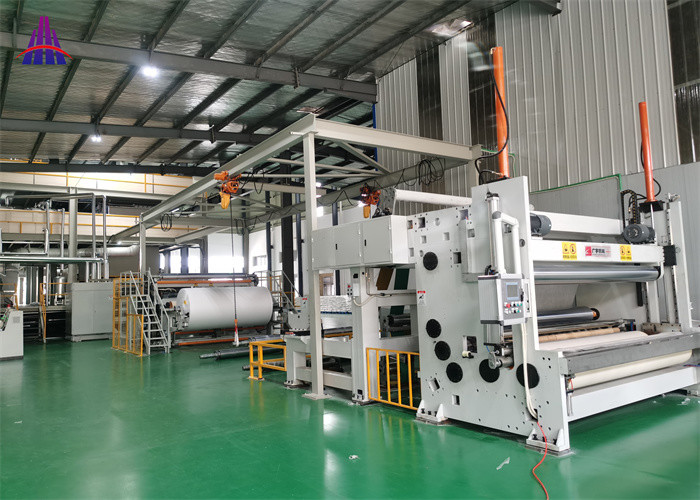Product Description
environment friendly pp hydrophilic nonwoven fabric for hygiene wet wips adult baby diapers non woven fabric making machine
Hydrophilic nonwovens: polypropylene (PP) nonwovens are widely used because of their excellent performance, simple processing method and low price. Especially in recent years, it has been widely used in medical care, clothing, packaging materials, wiping materials, agricultural covering materials, geotextiles, industrial filter materials and other fields, and has the trend of replacing traditional materials. Because PP is a non-polar structure and basically does not contain hydrophilic groups, PP non-woven fabric basically has no water absorption performance. Hydrophilic modification or hydrophilic finishing must be carried out in the production of hydrophilic PP nonwovens. To improve hydrophilic PP nonwovens in the production of hydrophilic nonwovens, generally by improving its surface wettability, there are mainly two methods: physical modification and chemical modification
Chemical modification mainly changes the molecular structure of PP, adds hydrophilic groups to the macromolecular chain, and then changes its moisture absorption, mainly including copolymerization, grafting, crosslinking, chlorination and so on. Physical modification mainly improves the hydrophilic effect by changing the high-order structure of molecules, mainly through blending modification (i.e. before spinning) and surface modification (i.e. after spinning). According to the addition time of modifier, blending modification (pre spinning modification) can be divided into masterbatch method, full granulation method and pre spinning injection method. Common color masterbatch is an important hydrophilic non-woven fabric method produced by non-woven fabric manufacturers. The common hydrophilic additives are first made into jellyfish particles, and then mixed with PP to spin into cloth. Advantages: simple production, no need to add any equipment, suitable for small batch cattle production, and long hydrophilicity. Disadvantages: slow hydrophilic effect and poor processing performance. It is often used for spinning cloth. The cost is high, and the cost is 2 ~ 3 times that of surface modification finishing method. The spinnability is poor and the process needs to be adjusted. For example, a customer wastes 5 tons of cloth from the factories of two parent companies, but does not produce finished products. In the full granulation method, the modifier, PP sheet and additives were mixed evenly, and hydrophilic PP particles were prepared by screw full granulation, and then melted and spun into cloth. Advantages: good processing effect, good lasting effect, and the cloth can be reused. Disadvantages: screw extruder needs additional equipment, high tonnage cost and slow hydrophilic effect. It is only suitable for mass production. Hydrophilic agent, namely hydrophilic polymer, is directly injected into the main screw of non-woven fabric before spinning, and then evenly mixed with PP melt for direct spinning. Advantages: the effect is long-lasting and the cloth can be reused. Disadvantages: uneven mixing often leads to difficult spinning and poor operability. Surface hydrophilic finishing is a simple, effective and low-cost method to produce hydrophilic nonwovens. Most of our non-woven fabric manufacturers mainly use this method. The main process is: on-line spunbonded hot-rolled non-woven fabric - roll coating or water spraying hydrophilic infrared or hot air. Advantages: the non-woven fabric has the advantages of non spinnability, fast hydrophilic effect, high efficiency and low price, which is 1 / 2-1 / 3 of the cost of ordinary masterbatch method. Suitable for mass production; Disadvantages: the post-treatment equipment needs to be purchased separately and is expensive. Poor washing resistance. The washing resistance test showed that the penetration time increased about 2 times after three times of water washing. Can not meet the reuse requirements; Mass production; The advantages and disadvantages of this method determine that it is mainly suitable for disposable products with high requirements for water permeability and hydrophilicity, such as sanitary materials, diapers, sanitary napkins, etc.

Advantage
1) The whole line is well-structured and easy operating
2)Control elements are of well-know made, high performance and reliable technology.
3)The whole line are controlled by PLC and operated with touch-screen.
4)The allocation of the main frame and auxiliary equipment can be specially designed and adjusted according to customer's requirement.
HHM 4000 m SS Double beam fabric making line date
| Width |
4000 M |
| Gsm |
9 - 120 gsm |
| Output per day |
15 - 25 Ton |
| Machine Speed |
≦ 350 m / min |
| Transformer |
≈ 1000 KVA |
| Power Consumption |
650º - 800º / Ton |
| Machine Size |
45 * 22 *12 M |
SS Model
| Working width |
Fabric |
Power input |
Consumption |
Annual output/Year |
| 1600mm |
9-120G/㎡ |
≈400KVA |
650º-800º/Ton |
3700T |
| 2400mm |
9-120G/㎡ |
≈500KVA |
650º-800º/Ton |
5100T |
| 3200mm |
9-120G/㎡ |
≈800KVA |
650º-800º/Ton |
6600T |
| 4000mm |
9-120G/㎡ |
≈1000KVA |
650º-800º/Ton |
8800T |
| 4800mm |
9-120G/㎡ |
≈1200KVA |
650º-800º/Ton |
10000T |
SSS Model
| Working width |
Fabric |
Power input |
Consumption |
Annual output/Year |
| 1600mm |
9-100G/㎡ |
≈630KVA |
650º-800º/Ton |
5800T |
| 2400mm |
9-100G/㎡ |
≈1000KVA |
650º-800º/Ton |
7300T |
| 3200mm |
9-100G/㎡ |
≈1250KVA |
650º-800º/Ton |
10000T |
| 4000mm |
9-100G/㎡ |
≈1500KVA |
650º-800º/Ton |
12400T |
| 4800mm |
9-100G/㎡ |
≈1800KVA |
650º-800º/Ton |
14000T |
| Machine Model |
Reifenhauser Reicofil 3/4,Spunbond lines, spun-melt lins S, SS,SSS, SXS,SXXS,SMMS ,SMS ,SSMMS |
| Machine Size |
18m-60m(L)*10m-31m(W)*10m-12m(H) |
| Raw Material required |
PP(polypropylene),additives
MFI/MFR:25-40g/10min(spunbonding process)
MFI/MFR:800-2000g/10min (Melt-blowning process)
|
| Effective width |
1600mm,2400mm,3200mm,4000mm,4800mm customizable width by requirements |
| Max Speed |
150m/mn-550m/min |
| Transformer&Power consumption |
Transformer require:200KVA-3000KVA
Power consumption :500KWH/Ton-1400KWH/Ton
|
| Output per year |
1500 Tons - 10000 Tons |
| Products GSM |
8gsm-250 gsm |
| Applications of products |
Industrial:Shopping bags, furniture ,agriculture ,packageing,etc
Medical:Surgical gown /cap /sheet /mask ,etc
Hygiene: Diapers ,sanitary ,napking , etc.
|
| Technical Parameters ( Standard Specification) of Our Nonwoven Machine |
| |
Model No. |
Gram Weight |
MaxSpeed(m/min) |
Capacity(T/Days) |
Equipment Size |
|
HH-S (single beam)
|
1.6m |
9-250 |
150 |
4-6 |
18*8*12m |
| |
2.4m |
|
|
5-7 |
18*10*12m |
| |
3.2m |
|
|
8-10 |
18*15*12m |
|
HH-SS (single beam)
|
1.6m |
10-120 |
350 |
8-10.5 |
45*15*12m |
| |
2.4m |
|
|
10-15 |
45*18*12m |
| |
3.2m |
|
|
13-20 |
45*20*12m |
|
HH-SSS (single beam)
|
1.6m |
10-100 |
550 |
12-17 |
50*15*12m |
| |
2.4m |
|
|
16-21 |
50*18*12m |
| |
3.2m |
|
|
24-30 |
50*20*12m |
SMMMS Model
| Working width |
Fabric |
Power input |
Consumption |
Annual output/Year |
| 1600mm |
9-80G/㎡ |
≈1600KVA |
1700º-1900º/Ton |
6200T |
| 2400mm |
9-80G/㎡ |
≈2000KVA |
1700º-1900º/Ton |
8000T |
| 3200mm |
9-80G/㎡ |
≈3000KVA |
1700º-1900º/Ton |
11000T |
| 4200mm |
9-80G/㎡ |
≈3500KVA |
1700º-1900º/Ton |
14000T |
| 4800mm |
9-80G/㎡ |
≈4000KVA |
1700º-1900º/Ton |
16000T |
1.Description Of Non-woven Machine
1) Parts of spunbonded nonwoven fabric production line:
Recycle extruder---->Main extruder---->Filter---->Metering pump---->Monomer suction device--->Spinning box(ENKA/KASEN spinneret)---->
Quenching air chamber---->Stretching device---->Web former---->Calender---->Winder---->Slitter
2) Spunbonded process and technical flow chart:
Additive(Recycling off-cut fabric)---->Raw material----> Melting---->Filtering---->Measuring ---->Spinning---->Cooling---->Stretching---->
Web forming---->Calendering---->Winding----> Cutting---->Final product

Nonwoven fabric roll

Precisely CNC machining




Exhibition show


Packaging Details
Main machine parts will be packed with wooden cases.Electrical parts will be packed with plastic and then packed into wooden cases.For the steel structure they will be packed in bulk into containers.


Our Service
Pre-sale Service
Employees have a special sense of responsibility and excellent teamwork spirit, so the machine adopts unique and outstanding components, which meet the highest standards of the nonwoven industry.
With the support of modern technology, to provide all customers with the best solution machinery Claim.
After-sales Service
Our customer service can answer inquiries.
We only believe that: the best machine with innovative ideas and high-quality after-sales service: "will meet your special requirements."

 Your message must be between 20-3,000 characters!
Your message must be between 20-3,000 characters! Please check your E-mail!
Please check your E-mail!  Your message must be between 20-3,000 characters!
Your message must be between 20-3,000 characters! Please check your E-mail!
Please check your E-mail! 
